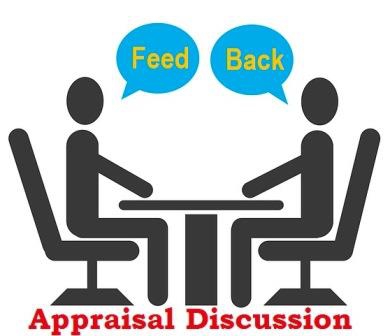Actions speak louder than words: Most people feel they will be held more accountable for their speech than for their gestures or body language.
As she looked at her face in the mirror, she realised there was something missing. She had an appraisal discussion in the next 10 minutes. This was not the first one and she knew this would not be the last either. She remembered how her dad always told her to put on the most valuable possession before stepping out every day. So, she wore a ‘smile’ before she entered the discussion!
There sure is apprehension, as most of corporate India gets ready for an appraisal discussion. Yet, we do display our most professional image (including a polite smile) at the discussion. However, there are some ‘dead-give aways’ each time. Let us explore some of them:
Actions speak louder than words: Most people feel they will be held more accountable for their speech than for their gestures or body language. They may even practise what to say, but rarely think of practising the gestures. They may rehearse the reactions expected of them but will be unable to gesticulate in the manner anticipated.
For instance, if you are asked why targets were not achieved, you may believe that it was because your manager didn’t support your endeavour. However, in the appraisal discussion, you do not wish to get into that area. That is a moment to watch out for. You may find, yourself going stiff when this topic comes up and you may try to state other reasons.
Sometimes to ensure that your body doesn’t betray what you truly feel, you may attempt to move as little as possible when you are on the verge of lying. But the truth is that it’s impossible to keep the body still when talking and not look odd. Yet, liars use far fewer gestures than the average person.
Professional interrogators say that they often realise suspects are lying when they freeze their upper body. It is similar to a prey freezing in its place on spotting a hawk flying overhead. The prey hopes that it can remain unseen if it is frozen. Such behaviour is noticed in kids as well. Research reveals that children, as young as five years old, show a tendency to move less when lying.
If the conversation suddenly seems odd — you might unconsciously notice that the upper body has frozen — with no movement when the person is talking. You might be right to consider this part of the conversation as deception.
Own words can betray: Usually, people lying would work hard to construct their entire story in their minds in a way that sounds logical and correct. However, just like gestures, verbal slippages give away important clues to catch a lie. Once the lie has been uttered, it is hard work to keep up the story. Liars have to remember the story, possible questions and plausible answers. They also have to be cautious to avoid contradicting themselves, be consistent with what the other person may know, not make mistakes, not appear nervous, look normal and so much more. Therefore, chances of verbal slippages, especially in long conversations are very high. Here are a couple of pointers on how words can betray your thoughts:
1. Parroting a statement: If you ask a question and someone repeats it back to you, it may be because that person is buying time to think of what to say. For example, if you ask “What do you think about the project “XYZ” that I completed in October 2015?” and the person answers with “What do I think about the project “XYZ” that you completed in October 2015? Well, I guess, it was OK” – then you need to sit up and pay attention. Had the person simply started with “Your project XYZ….” or “In Oct 2015….” – the person is perhaps recalling the project in her mind before answering. But repeating the entire question verbatim indicates that she is buying time.
2. Speaking too much or too little: In answer to a question, when someone is either too crisp or too wordy — you can bet that there is some deception underway. So for a question like “What do you think about the project “XYZ” that I completed in 2015? “, if the answer is either “good” or “the project was given to you based on your capabilities to implement. Though I did spend some time with you to give you the details about the project, you did complete the project on time. Basically, it was a good project with many complexities. There are many such projects being done in the organisation nowadays”. Both the answers are ‘dead give aways’. Too little information is as bad as too much of meaningless information.
There are more such pointers that can help in understanding lies and deception, especially in a performance appraisal discussion. Like John Maxwell said, ‘It’s better to prepare than to repair’. Being prepared with a smile on your face is good, but you would do better by knowing when there is deception underway in an appraisal discussion.
(The author is an HR consultant).




3 Comments
Interesting article…
Thanks to author for his insights.Key takeaway is about liars using fewer words. Would like to explore this further.
Like to receive